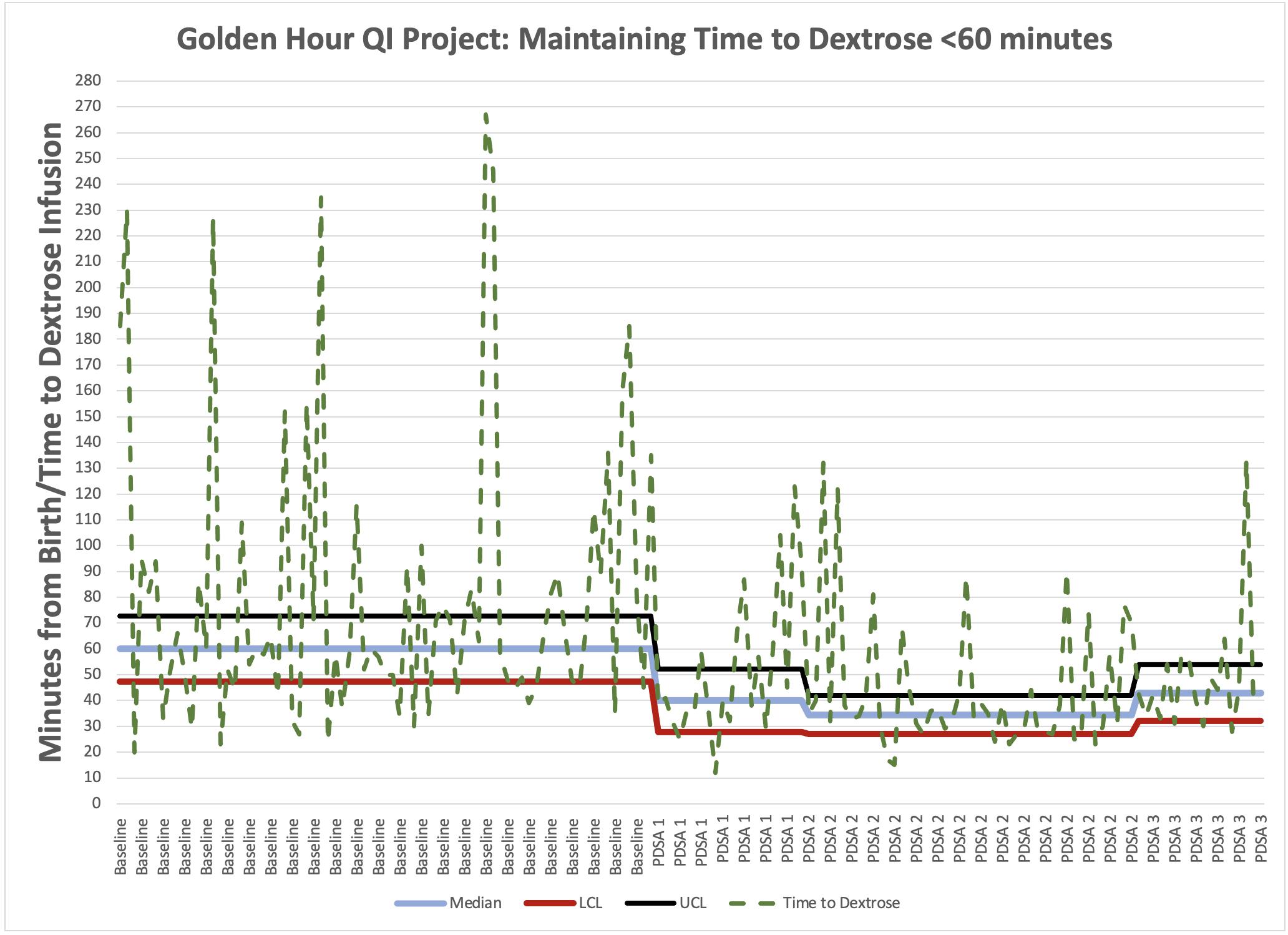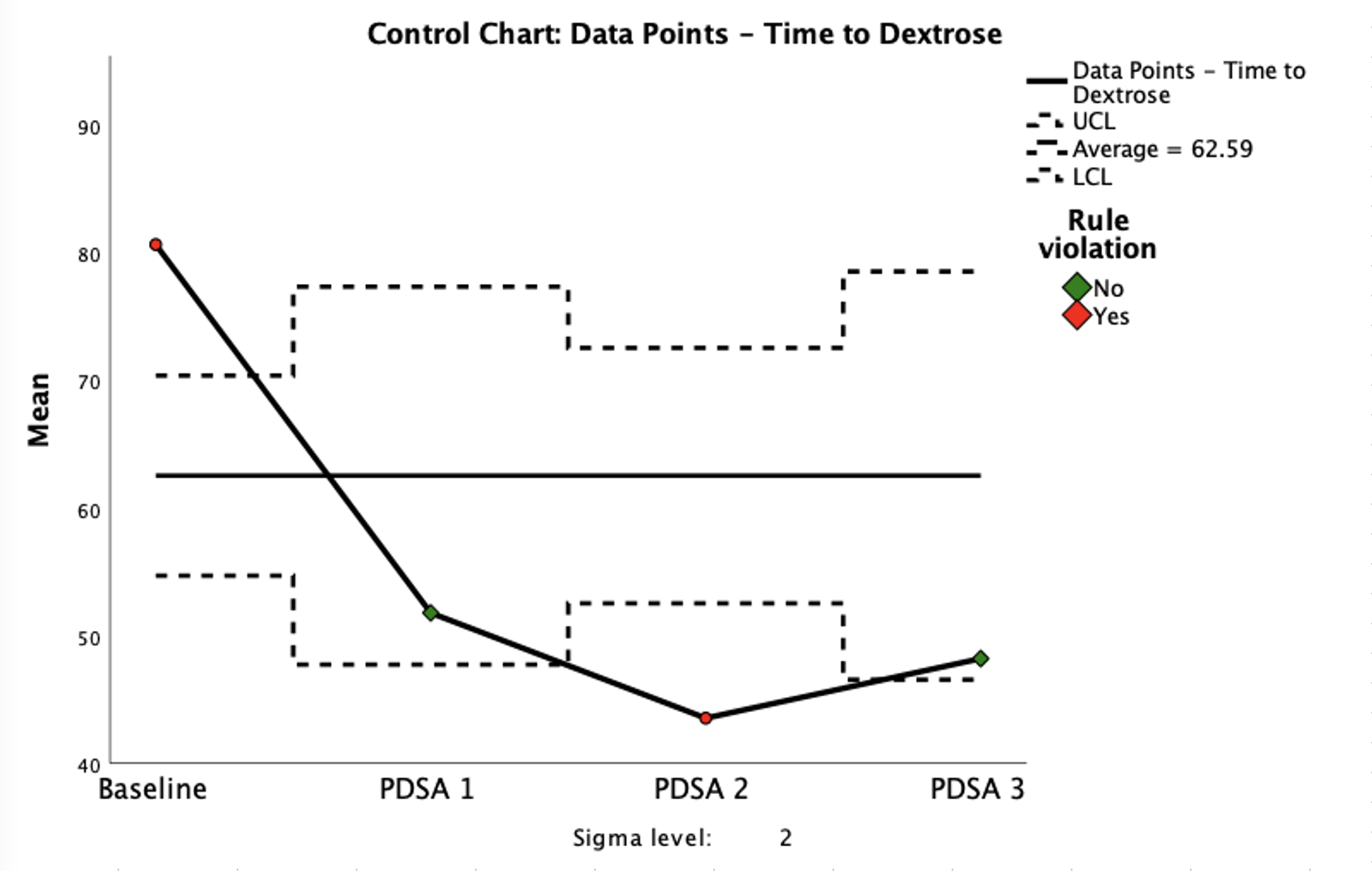Neonatal Quality Improvement
Neonatal Quality Improvement 4
741 - Improving time to dextrose to <60 minutes in premature infants <32 week gestational age
Publication Number: 741.343

Abhishek Purohit, DO (he/him/his)
Pediatrics Resident, PGY-3
Maimonides Infants and Children's Hospital of Brooklyn
Brooklyn, New York, United States
Presenting Author(s)
Background:
The concept of Golden Hour-- defined as the care given within the first hour of life in a preterm infant, is designed to decrease the morbidities and mortality associated with prematurity. Premature infants < 32 weeks gestational age (GA) have a higher risk of developing hypoglycemia shortly after birth. Hypoglycemia can lead to worsening short and long term morbidities in neonates. To mitigate the impacts of hypoglycemia, it is imperative to establish vascular access and start dextrose infusion within the Golden Hour in this population.
Objective:
A quality improvement initiative was undertaken in the Maimonides Medical Center (MMC) Neonatal Intensive Care Unit (NICU) to improve the time to dextrose infusion (TTD) in premature infants < 32 weeks GA.
Design/Methods:
Quality improvement methodology was implemented to improve the TTD infusion in preterm infants < 32 weeks GA. The SMART Aim was to improve TDD in premature infants < 32 weeks GA to within the first hour of admission in 95% of infants < 32 weeks GA admitted to MMC NICU. Data collected from 2020-2022 included a baseline period and three Plan-Do-Study-Act cycles.
Results:
For the baseline period, n= 75, the median TTD was 58.5 minutes. For PDSA 1, n=21, the median TTD was 40.0 minutes; p=0.02. For PDSA 2, n= 47, the median TTD 35.0 minutes; p=0.0001. For PDSA 3, n= 28, the median TTD 43.0 minutes; p=0.003. Stark improvement in TTD was noted. Run and control charts demonstrate stark reduction of TTD in PDSA's 1-3 compared to baseline. The incidences of hypoglycemia and severe hypoglycemia were also reduced, however were not found to be significant due to small sample size; p =0.213 and 0.583, respectively.
Conclusion(s):
Implementing QI methodology improves TDD in preterm infants < 32 weeks GA. TTD can be maintained within the Golden Hour of life in preterm infants < 32 weeks GA.


